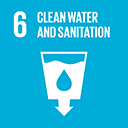
Producing cassava starch is important to the Thai economy, particularly in rural areas; however it can have adverse effects on the environment. For example, the production generates large amounts of wastewater, which is typically stored in large open lagoons. These lagoons emit large quantities of methane into the atmosphere. Methane is a greenhouse gas 21-36 times more potent than carbon dioxide.
Prior to this project, wastewater was treated through cascading open lagoons. This process resulted in the steady release of methane into the atmosphere. This project installed a closed lagoon anaerobic system that captures methane gas emissions, and uses them to generate clean energy. This not only avoids the emission of potent greenhouse gases, but displaces energy sourced from the burning of fossil fuels.

treated each year on average, providing a clean recycled water resource to farmers

generated each year on average, providing an alternative to the burning of fossil fuels

created, boosting local economies with new income streams

avoided each year on average by capturing emissions and displacing fossil fuels
The project has significantly improved local air and water quality. At the same time, the fossil fuel use of the starch plant has been significantly reduced. The project and the carbon revenue it generates provides jobs for locals and supports social and educational activities. The clean wastewater is used to irrigate nearby fields and allows fish farming, enabling local communities to increase their income.